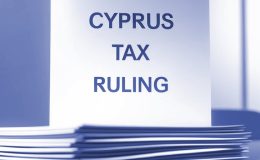Tax Obligations on Rental Income in Cyprus
Introduction
Owning rental property can be a lucrative venture, but it comes with its own set of legal and financial responsibilities. In Cyprus, understanding the tax implications of rental income is crucial for compliance with local laws and avoiding penalties. This guide aims to provide an in-depth look at the tax obligations associated with rental income in Cyprus.
Legal Framework
In Cyprus, the primary laws governing the taxation of rental income are the Income Tax Law of 2002 (as amended) and the Special Contribution for Defence Law of 2002. Additionally, the General Healthcare System Law of 2019 covers the General Healthcare System (GHS) contributions. It’s crucial to comply with these laws to avoid legal repercussions.
Taxation Tools and Penalties
As of 2023, the Cypriot Tax Department has implemented tools to detect undeclared income going back 12 years. Failure to declare rental income can result in severe penalties, including fines and restrictions on transferring or selling the property.
Tax Thresholds and Rates
Rental income is subject to taxation even if the total annual income of the property owner does not exceed €19,500. The income is subject to:
- Income Tax: If your total annual income, including rental income, exceeds €19,500, you are subject to income tax based on progressive rates.
- Special Defence Contribution: This is levied at a rate of 3% on 75% of the gross rental income.
- General Healthcare System (GHS) Contribution: This is levied at a rate of 2.65% on the gross rental income.
Calculations
For example, if the monthly rental income is €2000:
- Special Defence Contribution: €2000 x 75% = €750; €750 x 3% = €45/month
- GHS Contribution: €2000 x 2.65% = €53/month
Special Contributions
The Special Defence Contribution and GHS Contribution are mandatory and must be paid semi-annually—by June 30th and December 31st. Failure to do so can result in penalties.
Tax Reliefs and Deductions
Property owners can claim various tax reliefs, including:
- Loan Interests: Interests on loans taken for the rented property are deductible.
- Capital Allowances: You can claim capital allowances on the building’s value, usually at a rate of 3% per annum for a period of 33.33 years.
- Gross Income Deduction: A 20% deduction on gross rental income is allowed for income tax purposes.
Common Expenses
If common expenses like maintenance fees are included in the monthly rental income and are paid by the owner, they must be deducted to declare the actual income amount. This should be clearly stated in the rental contract.
Unpaid Rents and Defaults
In cases where the tenant defaults on rent payments, the owner should only declare the actual amount collected. Legal actions can be taken against the tenant under the Rent Control Law of 1983.
Reporting and Compliance
All rental income and associated expenses must be reported annually to the Tax Department. The use of certified public accountants is advisable for proper bookkeeping and compliance with tax laws.
Penalties for Non-Compliance
Non-compliance can result in various penalties, including:
- Interest on Overdue Payments: Failure to pay taxes on time results in interest charges.
- Fines: Heavy fines can be levied for undeclared income, especially if it is discovered during a tax audit.
Conclusion
Understanding the tax obligations associated with rental income is crucial for property owners in Cyprus. Failure to comply can result in severe financial and legal repercussions. Therefore, it’s advisable to consult with legal and financial advisors to ensure full compliance with Cypriot tax laws. Please contact our Limassol Law Firm for additional information.







